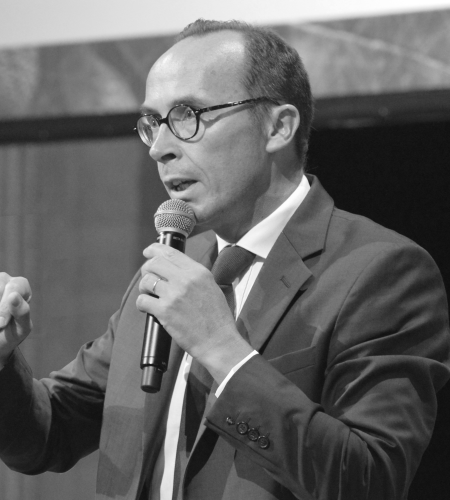
Alain Renaudin is founder of Biomim'expo, Chairman of NewCorp Conseil and member of the Advisory Board of FinX. Considered one of the emblematic figures of biomimicry in Europe and guided by this discipline which is dear to him, he questions around a major, vast and global subject: the individual facing his climatic responsibilities.
Hello Alain. Passionate and expert in biomimicry, you say that we must take as a model what has been proven for 3.8 billion years: the living. Today is no longer the time for the why, this is the time for the how. Explain to us.
Alain Renaudin : Homo sapiens sapiens is a proud and pretentious species that does not like to be exposed to problems to which it does not have the solution. By dint of warning without offering, or by offering little, we maintain anxiety. The result is psychological denial. In this invitation to move from the why to the how, it is about reconsidering the place of humans within their biotope and their ecosystem. Tomorrow will emerge from what we decide to make grow out of the present. For 30 years, we have done a lot of teaching about why we had to change, why we went into the wall, etc. I have been working on CSR & sustainable development issues for 20 years. Through biomimicry, we finally move from teaching the why to teaching the how, by considering nature / ecology / biodiversity no longer as a problem but as a solution. And this change of gaze changes everything. Sustainable development has for too long been seen as a quest for the holy grail. It has actually existed for 3.8 billion years, let alone for hundreds of millions of years (to speak of species and their lifespan). The good news is that humans don't need to invent sustainable development, they just have to take inspiration from nature! This shift from the why to the how is one of the levers that explains the success of biomimicry. It is an enlightening, inspiring pedagogy, which tells us that what surrounds us is a source of solutions. Nature is our ally, the living a toolbox at different scales. To reconsider ecology is to reconsider ourselves. We need solutions more than facts. We die from observations, reports, audits, which often tell us what we already know. The question is "what now? ".
You explain that humanity will not save nature. It is the planet that will save humanity. On the other hand, humanity is faced with its responsibilities: it must preserve nature. Can you explain this choice of semantics, which conditions your entire path of thought and work?
Our interdependence shows us that it is obviously the planet that will save the human species, if the latter recovers in osmosis and harmony with the entire living ecosystem that surrounds it. Humans have a moral duty, they must protect ecosystems. We are right to say that it must and can act positively to protect biodiversity. When we implement regenerative actions to protect biodiversity, it works. Change the behavior of millions of motorists and you will see the level of carbon dioxide in the air decrease. Humans can take positive, effective protective action relatively quickly. But we are also right to say that on a long time scale, biodiversity does not need humans to be well and better. Life is just evolution. Over hundreds of millions of years, what we know about biodiversity today has not always been. There have not always been polar bears, nor have there always been forests, pangolins... On the scale of 3.8 billion years and projecting on the next 3.8 billion years, polar bears and pangolins will be extinct, while others will have arrived. Over the extremely long time, we are little. We must let biodiversity continue its life, stop interfering with the balance of the world.

What is the best way to protect the human species?
Let us get out of this anthropocentric vision of thinking that humanity is the future of the world, including the world of biodiversity. This anthropocentric vision is, over the long term, ridiculous. Life started without us. It will probably continue without us. Anyway, she doesn't need us. This does not exclude the fact that we can act positively. The best way to protect the human species as a species is to develop a beneficial symbiosis with the entire biotope.
What lessons do you draw from the Covid-19 pandemic?
The current crisis is only a revelation that crystallizes ancient phenomena. Everything does not start with Covid-19, and the world afterwards is not to be invented ex nihilo. This desirable world of tomorrow has already been initiated, it must be accelerated. We are truly aware of our community of destinies as a species. This is probably a first in the history of mankind. Humanity has always developed through aggressive conquests. The confrontation has always been religious, military, or economic. Here we have no enemies and we find our animality again. We realize that we are fighting in a schoolyard. School is crumbling around us. Eventually it will collapse on us. No winner will come out of it. The school will be reborn, but we will not, by having a self-centered vision. We must stop having a killing action because it is in reality a knife that we are turning against ourselves. This is what the Covid-19 teaches us, it is a backlash, a call to order. This pandemic also reveals that climatic and ecological issues have moved closer to us on the spatial and temporal scale. They no longer concern future generations, but ourselves. They no longer concern distant lands, but us, today, at home. They no longer concern the children of distant populations. It is I, at home today, who am touched. Air pollution, one of the main causes of death, has until now been one of the indicators of these issues. It had drawn closer to all of us, everywhere, but remained insidious, indirect and slow ... where Covid-19 is rapid, identified, named without debate. Our future is intertwined with the future of everything else. Taking care of the planet is taking care of ourselves, and taking care of humanity. It is a healthy planet that can save humanity.
What do you think of the political actor?
We lack real social projects. Politically, we have most often had campaigns of rejection rather than project. But things are changing. Large expert bodies such as the IPCC and IPBES (Science and Policy for People and Nature, editor's note) must increasingly become political actors, in the noble sense, managers of the common good, forces of proposals. To propose is to expose yourself. It means making choices, it means prioritizing. It is complicated. We cannot adapt without changing. And change means offering solutions to live differently.
Economic actors are fundamental. What does the concept of corporate responsibility imply?Economic actors are fundamental. What does the concept of corporate responsibility imply?
We have to reconsider the models. And encourage them. I do not subscribe to this idea of a rather frequent, a little easy speech, which consists in saying, through a somewhat definitive formula, that there is a lot of greenwashing in what companies do. I am not saying that, or I am asking to demonstrate it, by a detailed analysis of the sustainable development reports of a large number of companies (audits, etc.). It's too easy, and especially today, because no one will contradict you. It is much more complicated to prove otherwise. Of course, much remains to be done, but it is better to encourage than to discourage, for our common good. Be critical, of course, but constructive. For a number of years, I have considered the company as the new political actor in our societies, in the sense of the management of the common good, for a fairly simple reason: the impact and the leverage effect are today. much more on the side of the socio-economic sphere than on the side of the political sphere. Of course, the political sphere has the power to legislate, and should propose a project for society. The one who acts and who can act is mainly the economic actor, association, citizen. Over the past 50 years, this economic actor has benefited greatly from a non-virtuous action as an economic development model. Now he realizes that this is not sustainable and understands that he can benefit much more from virtuous action. Starting with the point of view of the sustainability of the economic model: it is no longer sustainable to waste the resources you use to manufacture your products. For human reasons too: in terms of the attractiveness of the employer brand, in terms of the ability to appeal to a project, in terms of mobilizing the internal population and in terms of discourse vis-à-vis stakeholders (including shareholders) . To perpetuate these activities, I have been developing and advocating for 20 years, even if it means being a little provocative, in addition to philanthropy or patronage, "sustainable development of interest", as a profitable asset for a new economic paradigm. It is much more powerful today to subscribe to virtuous action than to harmful action. All this “positive resonance” dynamic is underway. Overall, we are going in the right direction. We have to reconsider the models. And encourage them. I do not subscribe to this idea of a rather frequent, a little easy speech, which consists in saying, through a somewhat definitive formula, that there is a lot of greenwashing in what companies do. I am not saying that, or I am asking to demonstrate it, by a detailed analysis of the sustainable development reports of a large number of companies (audits, etc.). It's too easy, and especially today, because no one will contradict you. It is much more complicated to prove otherwise. Of course, much remains to be done, but it is better to encourage than to discourage, for our common good. Be critical, of course, but constructive. For a number of years, I have considered the company as the new political actor in our societies, in the sense of the management of the common good, for a fairly simple reason: the impact and the leverage effect are today. much more on the side of the socio-economic sphere than on the side of the political sphere. Of course, the political sphere has the power to legislate, and should propose a project for society. The one who acts and who can act is mainly the economic actor, association, citizen. Over the past 50 years, this economic actor has benefited greatly from a non-virtuous action as an economic development model. Now he realizes that this is not sustainable and understands that he can benefit much more from virtuous action. Starting with the point of view of the sustainability of the economic model: it is no longer sustainable to waste the resources you use to manufacture your products. For human reasons too: in terms of the attractiveness of the employer brand, in terms of the ability to appeal to a project, in terms of mobilizing the internal population and in terms of discourse vis-à-vis stakeholders (including shareholders) . To perpetuate these activities, I have been developing and advocating for 20 years, even if it means being a little provocative, in addition to philanthropy or patronage, "sustainable development of interest", as a profitable asset for a new economic paradigm. It is much more powerful today to subscribe to virtuous action than to harmful action. All this “positive resonance” dynamic is underway. Overall, we are going in the right direction.
When did you say to yourself “I have to face my climatic responsibilities?”
I have always been very curious and sensitive to the world around us. But there was a click, the famous Johannesburg Summit in 2002, during which Jacques Chirac said "Our house is on fire and we are looking elsewhere". At that time, I was beginning to sense that something was going on. While the words “sustainable development” began to appear in the public debate, we saw a first generation of “Mr. and Mrs. sustainable development” arrive in large groups. The beginning of the 2000s corresponded to the new NRE laws: the obligation of listed companies to report on their impacts. This is the time when one wonders whether economic development is sustainable in relation to the resources it demands.
When did you discover biomimicry?
I discovered biomimicry when a few of us created the CEEBIOS (Center for Studies and Expertise in Biomimicry). I found it a shame that the community revolving around sustainable development did not know this approach, which is truly one of the ways of the future. Beyond the technological and scientific aspects, it provides philosophical and political answers. The first mass effect of biomimicry is not due to a disruptive technology that would completely overturn an industrial sector of activity, but to a proposed change of outlook on living things, a 180-degree reconsideration of the environment. The mass impact of biomimicry is first and foremost cultural and it is true. No one comes out indifferent, because biomimicry also awakens a pre-conscious evidence in each of us: nature is great, it is beautiful, we love it and cannot do without it.

Could you give us an example?
It's great to talk about a beetle by describing its size, weight, what it feeds on, the environment it lives in. Certainly. But if you continue the story by explaining that he has a shell that allows him to harvest water in the desert, that he has elytra that fold in such a way, stupendously sophisticated, etc., then you re-enchant. the discourse on biodiversity and you create semantic bridges. When an entomologist describes an insect to you by continuing the story, telling you that it is able to self-regulate its temperature, that it has a structural coloration on its wings, which is otherwise antibacterial and hyper-hydrophobic, then the entomologist talks to the engineer, the biologist talks to the chemist, etc. Biomimicry offers semantic bridges between different academic, scientific and industrial populations needing to find a common language. Biomimicry is a universal language proposal linking humans, disciplines and industries.
You are a fundamentally positive person. What do you think of the surrounding media discourse?
I want to come back to the idea of greenwashing. We tend to want to be critical right away. It's quite cultural in France, we value ourselves in the revolt, the refusal; we are weak when we nod. Recognizing that the other is right is often seen and experienced as an abdication. History holds that strong people are the ones who said no. However, by doing so, one discourages initiative. It’s very difficult to have 100% positive action. You have to accept to have an action that is not yet ideal, but that is going in the right direction. I prefer to encourage benevolence to move forward, it is a very powerful technique. We can be strong by saying “yes”! I often bet on sincerity, there are more men and women of good will than evil men and women. In our media world, a falling tree makes more noise than a growing forest. We only do “headlines” on falling trees! It's silly. This is the best way to discourage positive initiatives. I strongly believe in the hybridization of ideas. By telescoping looks, we do not see the world in the same way. I see this every day! The great bio-inspired ideas are multidisciplinary, they come from the collective. Let's take the example of the beetle again. We all have a different way of describing a beetle: this enriches our common knowledge. Common knowledge is greater than the sum of knowledge (like ecotones, which are richer in biodiversity): it is meta-knowledge. We are intimidated by the idea that we have to change the paradigm. But, if we pose the problem in another way, we will promote enrichment of the looks, we will prove that we can move a boat forward with something other than a propeller! Yes, we can create these dizzying techniques. Yes, there is a rocker to operate.
What new horizons are you heading?
To exist ! And continue the adventure. Continue to reveal. Our credo: change look, to change scale, to change era. All through the strength of the collective. Biomimicry is drawing inspiration from nature and also drawing inspiration from others. We are interdependent on other women and men and we are also interdependent on our environment. This double interdependence is pleasing, vital, in the sense that it creates vitality. If you don't know how to listen to nature and others, you are not into biomimicry. There is only one fatality that I accept today, and that is the fatality of our community of destinies. And that's a good fatality.
Alexandra Corsi Chopin



